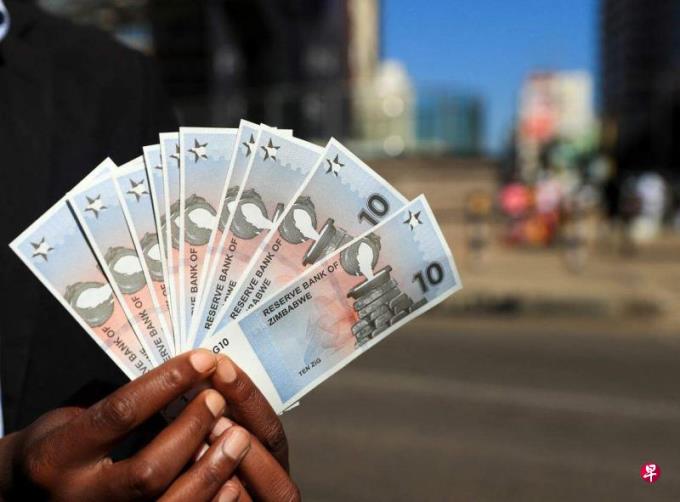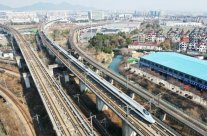
Based on human nature, a country where the poor accounts for the majority, the will of votes will inevitably tend to distribute, the country will inevitably populate, and economic policies will inevitably emphasize state intervention and government distribution.
According to the Zimbabwe pioneer report on April 30, Zimbabwe's new currency ZIG "Jige" banknotes and coins began to circulate on the same day.
On April 8th, the country's stock market was shocked one day, and the stock index directly fell from 1.1 million points at the opening of the market. It fell to 101 points within a trading day, a decrease of more than 99.99%.Essence
The flashing collapse of Zimbabwe's stock market is that the reason behind Zimbabwe's inflation is too high, and the currency reform promoted to solve this problem.Earlier, Zimbabwe Reserve Bank announced the issuance of the new currency Zig "Jige" linked to gold, in order to rescue the collapse, to replace the Zimbabwe Yuan, which had depreciated by 80%during the year.Before that, in order to avoid the instability and high inflation rate of local currency (the inflation rate in March reached 55.3%of the 7 -month high), local investors bought stocks, resulting in the stock index of the country's stock index since this year reached that the stock index has reached higher than that of this year.330%.This "sudden" plunge has further proved that Zimbabwe is the fact that Zimbabwe is a complete failure country.
But different from what we think is that in the early 1980 independence, Zimbabwe was once known as the "African Bread Basketball". Grain from Zimbabwe has supported the hungry people almost entirely in Africa.For a few years, the country was drought, but Zimbabwe still exported 450,000 tons of corn to 15 African countries.What's more valuable is that the second year of the disaster continued to export charcoal exports in the snow, and his nationals were still worry -free.The people here can be described as lively. When Zimbabwe was just independent, the currency was quite strong. 1 Zimbabwe Yuan exchanged for $ 1.47.Zimbabwe once became the richest country in Africa with South Africa.Unfortunately, the economy has not been a glorious scene, but a worse situation in Zimbabwe.
Why did the second richest African country Zimbabwe's prosperity no longer?Why did the economy fall all the way after 1982?
The current popular point is that the root cause of the reason why Zimbabwe's economy has collapsed from prosperity to collapse is autocracy.In their opinion, under the authoritarian system, civil rights are not open, and the official power will inevitably expand infinitely.This has created a large number of resources and opportunities for officials at all levels; the achievements of the people's labor have been grabbed and melon by officials at all levels and very few vested interests.Continuously widen.
They firmly believe that only under a democratic political system can the national economy be able to develop healthy.The representative of this view is Mancur Olson, a late famous economist in the United States and a professor at the University of Maryland.He was impressive in the way he studied the rise and fall of the country in the "collective action theory".Olson firmly believes that only the democratic system can support long -term economic growth.In their opinion, the democratic mechanism and economic growth are positively correlated. The logic based on the cognitive mechanism is that the democratic mechanism can effectively protect personal property rights. More importantly, this mechanism can ensure that the government's behavior is limited to a certain range of scope., And then protecting individual property and will not be illegally deprived by the government.At the same time, the government's behavior can also be reasonably expected by the people.In this way, an effective incentive mechanism is established to achieve promotion of economic development.
Democracy Promoting Economic Development Lack of Reality
But Olson's proposition has obviously failed to obtain the support of too much academic and empirical evidence.For example, the United Kingdom before the stage of Mrs. Sachel in 1945, after the independence of 1947 to 1991, India, some Latin America and South Sahara Africa have adopted a democratic mechanism, but the economic performance is not as what Olson thinksThat's the way.In fact, the opposite is that the economy adopt a democratic mechanism is slow and bad.
In a clear comparison with the poor economic performance of the above -mentioned democratic government, including Chile, Chile, Chile and Chiang Kai -shek's governance under the governance of Pinochet, South Korea and Franco governed by Park Jung -hee's governance in Spain ... We even evenIt can also be traced back to the mid -to -late 19th century. The Emperor of the Huo Hengson dynasty and the German Empire ruled by the iron -blooded prime minister Bismarck, and Japan under the rule of Emperor Meiji ... such countries are undoubtedly authoritative systems, or even dictatorship.But as long as we have a little objective, we cannot deny such a fact, that is, regardless of the ancient and modern, regardless of the race, or the economy of the above -mentioned autocratic economies, we have achieved great development.
This shows that the prosperity of the economy of one country (or region) has nothing to do with the political system.Of course, countries such as the United States, Western Europe, and Nordic, and the economy can develop long -term development.But as mentioned earlier, like the Britain from 1945 to 1979, India from 1947 to 1991, and Chile under the governance of Aliande ... such a democratic government state can also collapse from prosperity to collapse, orAt least the edge of collapse (India's economy has been stagnant for a long time, and Britain has always been trapped in Britain and cannot extricate itself).On the contrary, as the above -mentioned Chile, South Korea, Taiwan and other authoritarian or authoritarian dictatorships, the economy has developed greatly.Of course, it is necessary to explain that this does not mean that autocracy is an inevitable part of economic development. As the former Soviet Union and other countries show that the economy of these countries will also collapse.
Since the economic prosperity of a country has nothing to do with the political system, what is the same?We found that we found that the facts of past experience found that the economic system is the cornerstone that determines the economic prosperity of a country.
Just as scholar Yao March is discovered: "There is no relationship between the sense of decisive theory between economic freedom and political freedom. There may be such a situation: politically freeFreedom, or incomplete freedom, such as India before the 1950s until the reform of the 1990s, and even Britain after World War II.The economy is generally free, and Chile under the rule of Pinochet belongs to this category.
National Excessive Intervention Free Market
Zimbabwe's puppets are in the economic system that is not free and excessive intervention in the country -in 1980, under the supervision of British, the black guerrilla organization was finally willing to remove the armed to end the civil war and held the first democracy in Zimbabwe's history in history.election.Although Muzrewa has the support of the original Rodsian white regime and the South African government, it lacks trust among the large parts of the country in the country.Robert Mugabe and his Zimbabwe African National Alliance (Zanu), who led, received a majority of votes in the March election and obtained the regime.
In other words, in 1980, Mugabe came to power in the form of democratic public opinion.Later, the reason why Zimbabwe was in trouble is also very simple -humanity.When the poor take advantage of the majority, you don't need to pay for your own work. So why do you have to produce cakes instead of allocating cakes?In other words, based on human nature, a country with the majority of the poor, the will of the votes will inevitably tend to distribute, the country will inevitably populate, and economic policy will inevitably emphasize that state intervention and government distribution.As a result, economic stagnation, creating more poor people, further politics, and then paving the way for the poor to dictatorship.Zimbabwe is undoubtedly a typical example.
At the beginning of independence, more than 80%of the cultivated land in Zimbabwe was occupied by white people with a population of less than 5%.In this black nationality accounting for the absolute majority, politicians are to obtain blacksThe support of ethnic groups, the land held by whitening was the reason for the land reform from the black man in the colonial era to carry out land reform.In 1992, the government amended the constitution, forced redemption and requisitioned white land, and then divided into black people who accounted for the absolute population.In 1996, Mugabe announced that it would force white land within five years.
Just after the New Year in 2000, the "Revolutionary Warrior" accounted for 1,200 white farms in one fell swoop.This caused a large number of white farmers in the country to leave, and the economy fell into chaos.Mugabe may have no consequences.In China, the white farm owner who understands management and technology has gone. After the black people who got the farm, they found that they were unable to manage the farm and plant a good crops, and the agricultural production was getting worse.
In addition, the Zimbabwe government has also issued a "dead order" to foreign -funded enterprises across the country -either to transfer at least 51%of the shares of Zimbabwe in accordance with the country's localization laws, or go away.
In the external environment, the above -mentioned reforms of the Zimbabwe government have undoubtedly harmed the interests of Western countries.To this end, the U.S. Congress passed the Act in Zimbabwe in December 2001.In 2002, international financial institutions and Western countries stopped providing other aids other than food relief assistance.Since then, Zimbabwe's agriculture, tourism and mining industry have plummeted, and the economy has gradually collapsed.
The environment of inside and outside the inside and outside forced Zimbabwe to embark on the road of super currency.Ironically, at that time, the downturn in various industries in Jin Kingdom at that time made productivity further decline, government finances could not be eaten, and there were fewer goods on the market, and the prices naturally increased; severe inflation caused the currency to further depreciate.More currencies are put into the market to make up for the fiscal deficit, and the result is further intensifying inflation.To what extent does Jin Guo inflation?From January 2009, the value of Xinjinyuan issued by the Central Bank of Zimbabwe is as high as 1 million yuan, which can be seen.
The author is a Chinese economist, financial columnist




